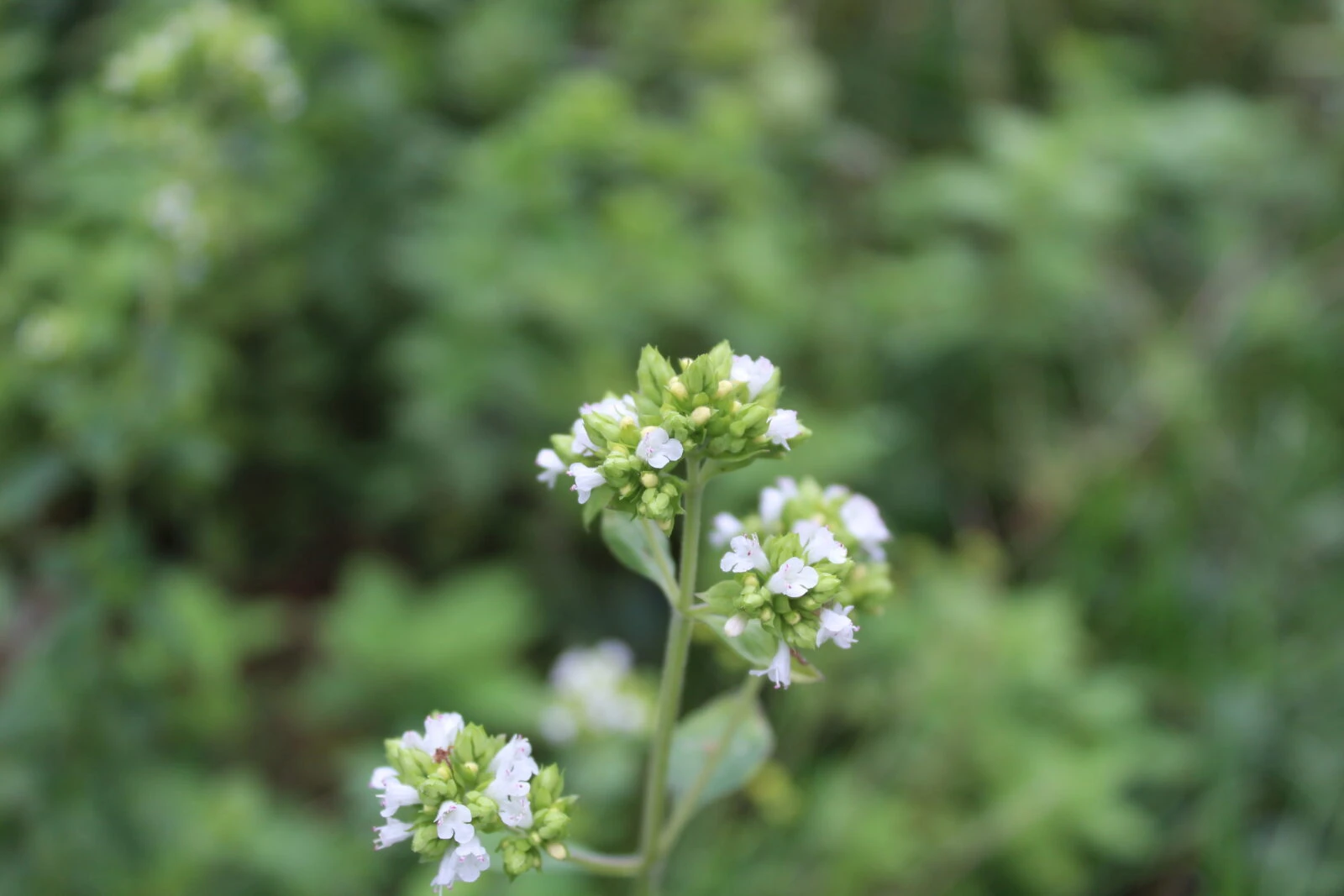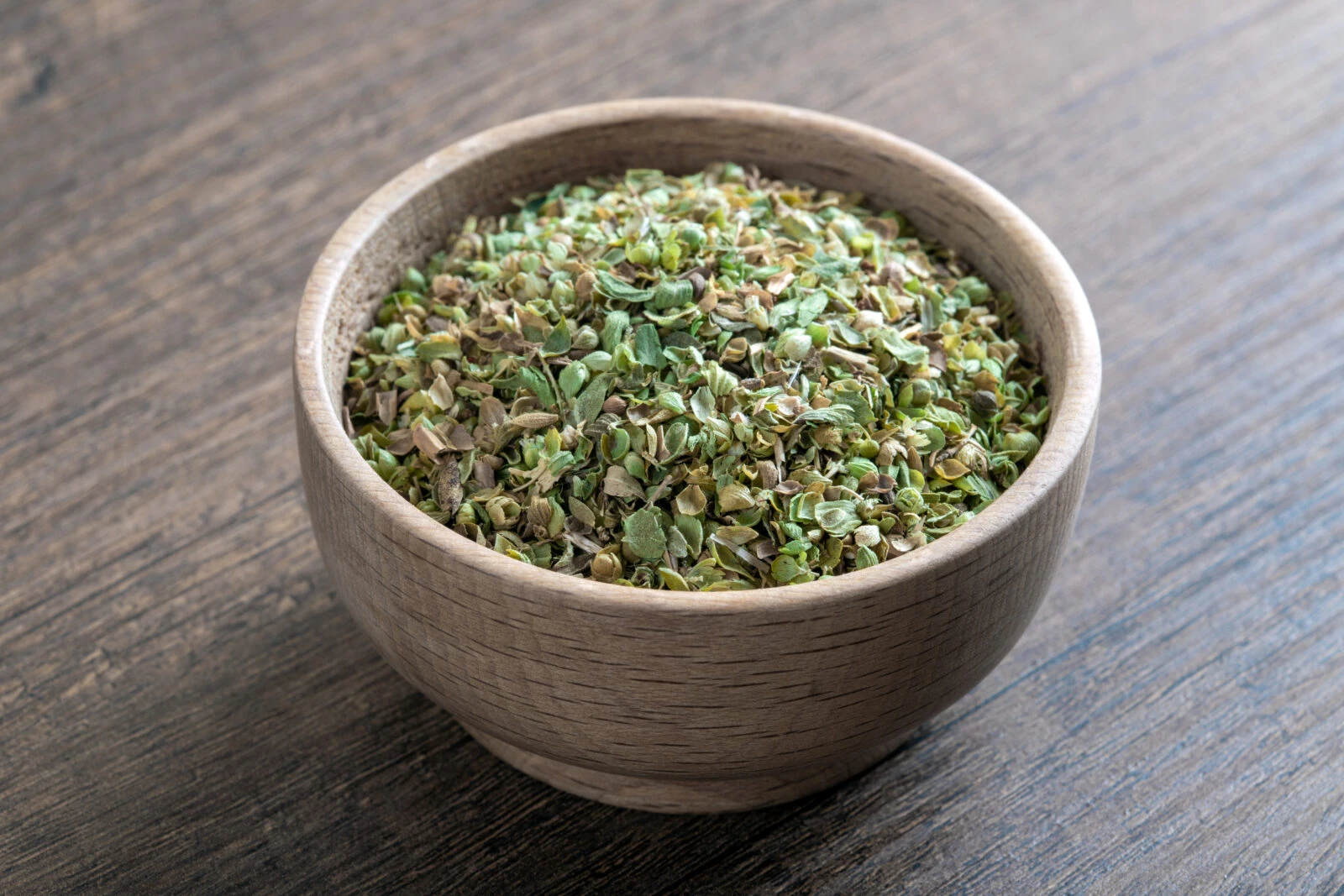Turkish oregano: From ancient roots to modern markets
 A bowl filled with a pile of organic mountain oregano seeds, alongside a spoon containing ground oregano. (Photo via Wide Angle)
A bowl filled with a pile of organic mountain oregano seeds, alongside a spoon containing ground oregano. (Photo via Wide Angle)
Türkiye is the world’s leading producer of oregano, a versatile herb known for its medicinal properties and culinary uses. According to Türkiye’s national broadcaster TRT, the country boasts 77 different species of oregano and generated $62.3 million in exports in 2024 alone.
Oregano has been treasured since ancient times, originating in the Mediterranean region and spreading worldwide. Its aromatic qualities make it a staple in the food industry, particularly in meat dishes, and a valuable ingredient in pharmaceuticals and cosmetics. Türkiye stands out as the top global producer and exporter of this miracle herb.

A herb of many uses
Cigdem Bozdemir, an agricultural engineer specializing in oregano research, highlights the enduring importance of oregano: “Its valuable essential oil has ensured it never lost its significance.”
Oregano’s diverse applications span from culinary uses to its roles in health and beauty products.
Home to 77 species
While oregano thrives across the Mediterranean and even in the Americas, Türkiye is home to 77 of the 306 known species from the five main genera: Thymus, Origanum, Satureja, Tymbra, and Coridothymus. The country’s rich biodiversity attracts international buyers for pharmaceuticals, food, and cosmetic raw materials.
Notably, 65.2% of Origanum species, 52.6% of Thymus species, and 28% of Satureja species are endemic to Türkiye. This unique heritage gives Türkiye a leading edge in the global market.
Pioneering research and development
Türkiye does not rely solely on wild oregano. The Ministry of Agriculture and Forestry, through its Agricultural Research and Policies General Directorate (TAGEM), develops new oregano varieties focusing on quality, yield, and adaptation.
Research institutes across the country have registered unique varieties, including Ceylan 2002, Taysi 2002, Winter, Timo, Tinmaz, Baser, Oguz, Tekin 2017, Ulug Bey, and Arimaz77.
‘Turkish oregano’ sets global standard
Türkiye’s oregano outshines competitors from Greece, Spain, Chile, Mexico, and Syria. In 2023, Türkiye exported over 17,000 tons of oregano, generating more than $55 million. By 2024, these figures had risen to over 18,600 tons and $62.3 million.
Bozdemir points out that these exports include unprocessed (whole) oregano, processed (crushed or ground) oregano, and essential oils. She notes, “The high quality of Turkish oregano earned it the name ‘Turkish Oregano.’ Our exports, rich in carvacrol, are primarily derived from native Origanum species.”

Growing production and global demand
Since 2018, Türkiye has nearly doubled its oregano production. Cultivated areas expanded from 139,000 decares to 216,000 decares, while production volumes rose from 15,000 to over 30,000 tons. Izmir and Istanbul oregano varieties are particularly popular.
Bozdemir emphasizes the importance of maintaining the ‘Turkish quality’ image: “As global consumers become more educated and health-conscious, the demand for natural, pure products in industries like perfumes, medicine, and cosmetics is rising. To retain our market leadership, Türkiye must continue producing high-quality spices and essential oils that meet market standards.”
Health sector applications
Oregano’s health benefits extend into the pharmaceutical sector. Bozdemir explains: “Research shows oregano’s antiviral properties are effective against rhinoviruses and influenza viruses. During the COVID-19 pandemic, thymol derived from oregano was included in the U.S. Environmental Protection Agency’s list of disinfectants against the virus.”
Studies have also demonstrated oregano essential oil’s efficacy against a range of RNA viruses, including human and feline coronaviruses. Promising developments in cancer treatment further underscore the herb’s medicinal potential.
Best practices for oregano use
Oregano is most commonly used as a spice but also finds its place in salads and pickles. Bozdemir suggests adding oregano a few minutes before turning off the heat when cooking to maximize the benefits of its essential oil. Oregano tea can also be made by steeping fresh or dried oregano in hot water for a few minutes.
For those sensitive to its strong taste, oregano can be diluted with water, fruit juice, or tomato juice. However, Bozdemir advises that people with chronic conditions or those who are pregnant should consult their doctor before using oregano.



